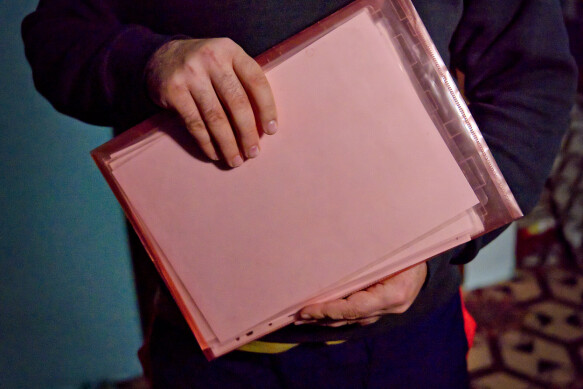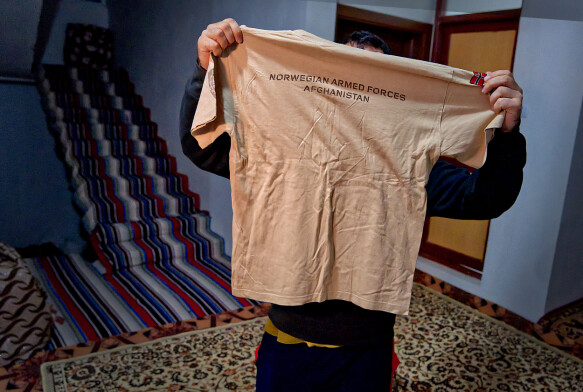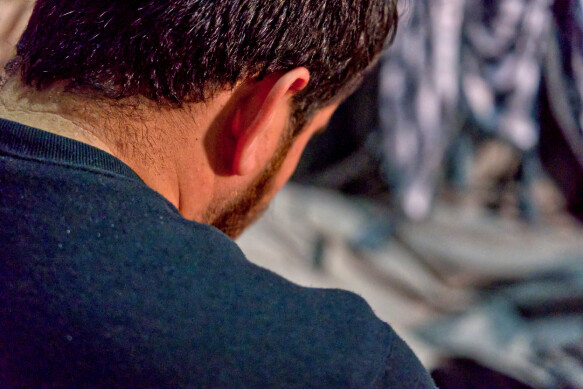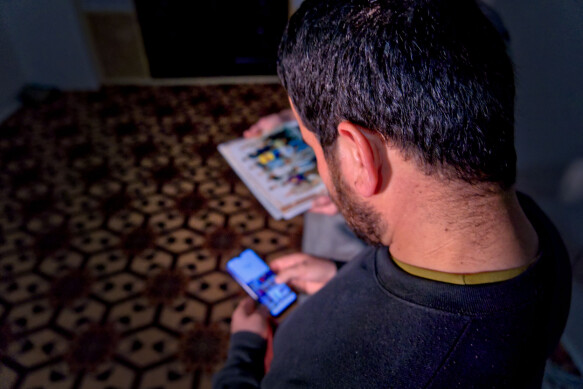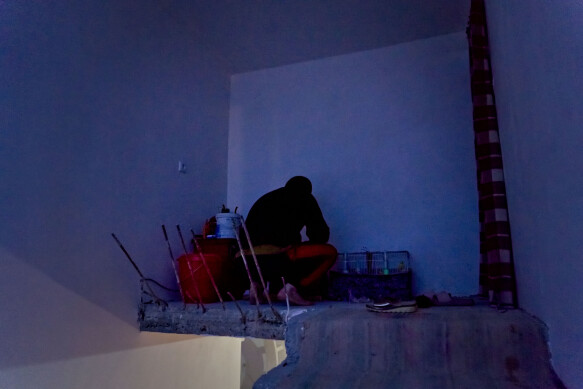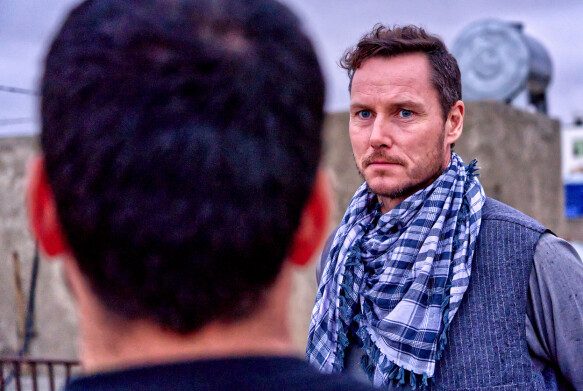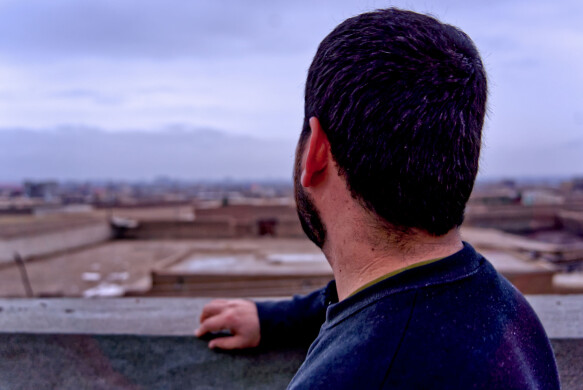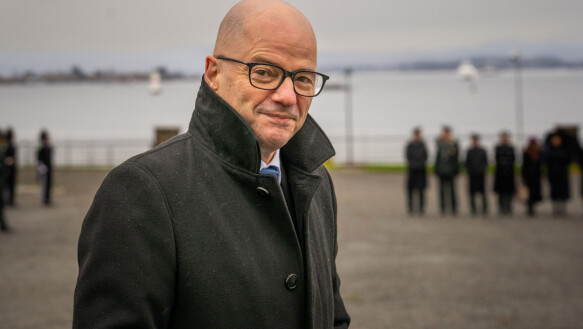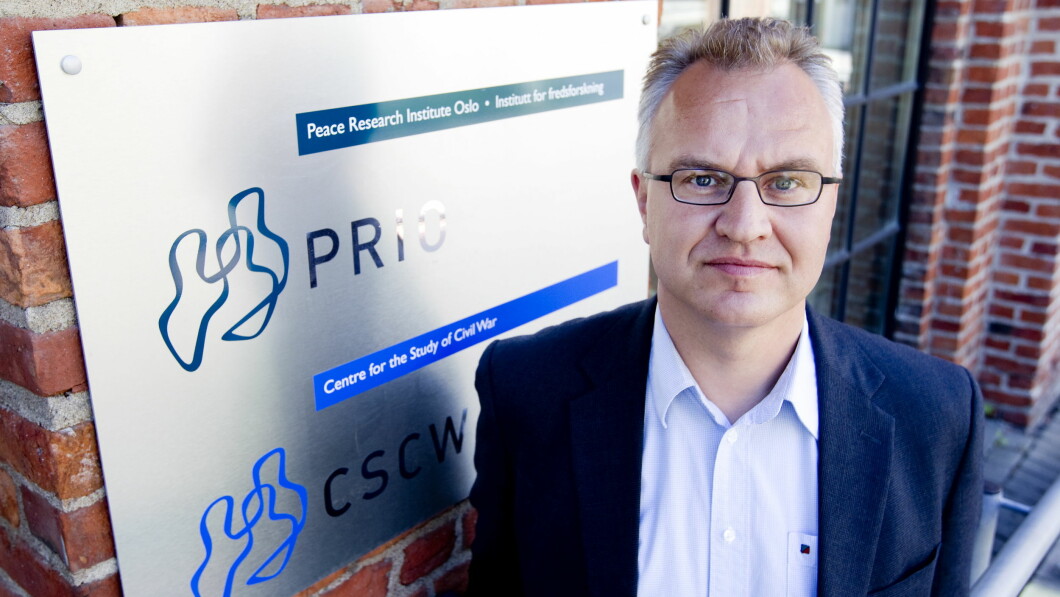The rain will soon turn into snow – winter is at the gates of Afghanistan.
In a house outside Mazar-i-Sharif, a man with a history related to Norway also lives.
– This is a Norwegian Army T-shirt they gave us that says “Ahmed” – as we chose to call him – in a low voice.
The colors of the Norwegian flag on his shoulder are clear, and the press bezel shows that he did not dare to wear it.
From a secret location, Ahmed found the images that several of his colleagues had burned in fear of being associated with Norway and the ISAF force. At first they were more than 20 people in the same position, now there are twelve people left. Others have been granted residency in Sweden, Germany, the United Kingdom, and the United States.
– This is Hugo, Ivar and Sven Eric. Ahmed’s voice heats up as his fingers slide over the pictures.
– you look happy?
– Yes, at that time I was fine.
The memories of the four years he spent in the care of the Nidaros camp are many and good. He says the Norwegians were a people you can really trust.
We used to tell friends and relatives that the Norwegians are the best in the world. They are respectable people.
He talks about life in the Nidaros camp, and about the good times with the Norwegian soldiers whom he once saw as his friends.
– Do you still trust the Norwegians?
During the time I worked with them, they never lied to me. I hope they won’t lead us behind the light this time either.
– Since they promised, I’m sure they’ll leave us. But I don’t understand why nothing happens.
When the Taliban took control of Afghanistan in August of this year, Ahmed and others who worked in Norway feared for their lives.
During the next twenty years of the war in Afghanistan, the Taliban repeatedly stated that anyone who cooperates with the enemy is also their enemy and must be beheaded.
So there was great joy when Ahmed and others who had worked in Norway in Maimana, Kabul and Mazar-i-Sharif in August received a text message from Norwegian officials in Afghanistan. She said they and their families would meet at Kabul International Airport to be evacuated:
“We are from the Norwegian government. We are trying to evacuate you. If you need help, tell us where you are.”
But when a suicide bomber attacked Kabul International Airport on August 26, the counter-message came:
– At night they sent us a new message in which they said that unfortunately they stopped the evacuation, says Ahmed.
– Did you hear anything from the Norwegian government after that?
– Not yet, says Ahmed quietly and looks toward the room where his wife and three-year-old daughter are staying.
We go up the stairs to the roof. On a small ledge inside the steel door that barely keeps the cold, three canaries perch in cages. Two white and one yellow.
Ahmed carefully pours some bird seeds into the food bowl.
– All our relatives ask why they were evacuated to work in other countries such as Sweden, Germany and the United Kingdom.
It is hard to bear that even his wife now suspects that they will be evacuated.
– Can we take a break?
Emotions prevail, and Ahmed steps out on the roof of the house which is now the family’s hideout.
Icy winds sweep the rain from the north.
Not far away we hear the call to prayer from the mosque.
Ahmed still trusts that Norwegians are a people who stick to their word.
But doubt gnaws farther and farther with each passing day.
Working with the application scheme
Defense Secretary Odd Roger Inoxen told TV 2 that they are working on an application plan for former defense personnel in Afghanistan, but he could not say when it would be ready.
“I understand very well the frustration and desire to emerge among those who have worked in the Norwegian defence, says Enoxen.
While Sweden, the United Kingdom and a number of other countries have resumed evacuations of former local staff from Afghanistan The Secretary of Defense will not give any guarantees.
Odd Roger Enoksen, Minister of Defense, Sp. Photo: Thomas Evensen/TV 2
– We’ve extracted some, but there are a few different things that form the basis for us to get more. We are working on this application now, says Enoksen.
What are the different things that make up the foundation?
“I can’t go into that, but the most important thing right now is to implement the new application scheme as quickly as possible,” concludes Enoksen.
Norway must take responsibility
Red Party leader Bjorn Moxness is pressing the government to take back 12 Afghans who worked with Norwegian forces in Mazar-i-Sharif in 2006-2014.
Bjornar Moksnes, leader Rødt. Photo: Martin Leigland / TV 2
– They did work in Norway, and they did it with a risk to life and health both to themselves and their families. Therefore, all that is needed is for Norway to help those who need help. Moxnes tells TV 2 it’s our responsibility and we must take it.
There have been many cases where people who worked with foreign forces have experienced reprisals, says Christian Berg Harpviken, a researcher in the Department of Peace Research.
– It’s a bit unclear, Harpviken says, whether this is under the auspices of the Taliban leadership or if there are others taking revenge.
Christian Berg Harpviken is a sociologist in the Department of Peace Research. Photo: Gorm Kallestad
He stresses that the situation in Afghanistan is very confusing and insecure.
There is no doubt that those who have worked with foreign forces have more to fear than ordinary Afghans, says Harpviken.

“Organizer. Social media geek. General communicator. Bacon scholar. Proud pop culture trailblazer.”



